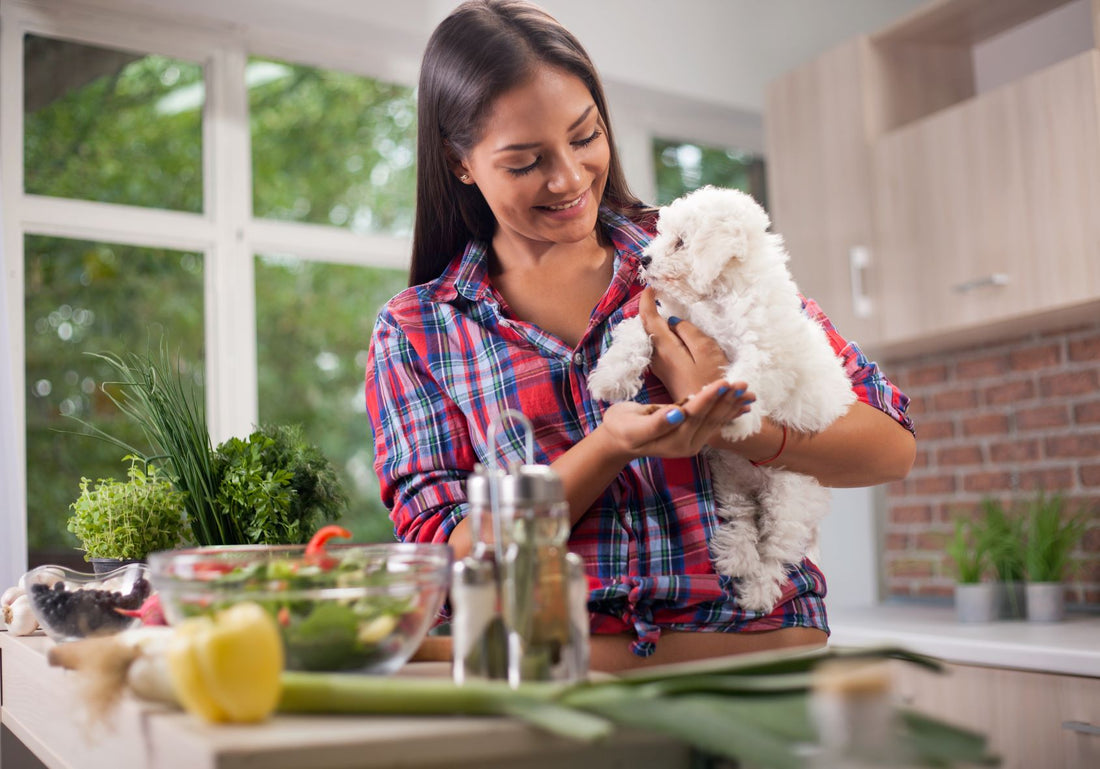It's easy to accept that industrially produced commercial diets are the normal way of feeding our animal companions. Since first being developed in the 1950s and 60s, ultra-processed dry and wet foods have become the main source of nutrition for the vast majority of pets in the Western world. And in many ways this has been a good things, as they often replaced diets of scraps and left-overs that were usually poorly balanced and far from healthy. With the introduction of these new foods, our dogs and cats began to enjoy diets that while far from perfect, were at least nutritionally complete and the days of vitamin and mineral deficiencies were largely left behind.
However, despite the benefits that commercial nutrition has brought, there has been an increasing realisation in recent years that the switch from homemade to industrial foods has not been all positive. With improvements in the understanding of how industrial processes affect the nutritional value of foods we have started to question the wisdom of feeding ultra-processed diets to our pets (as well as to ourselves), and it is now becoming clear that while commercial pet food undoubtedly have there place, we can do better by our pets.
Our understanding of the potential downsides of ultra-processed pet foods began properly with the 2003 publication of a study by two Belgian vets, Gerard Lippert and Bruno Sapy, who looked at a range of influences of the life-expectancy of dogs. One of these factors was diet, and they compared the outcomes for dogs being fed on commercial diets with those being fed homemade, and the results were astounding - according to their analysis, dogs fed a completely homemade diet lived on average 32 months longer than those fed on a completely commercial diet. That's almost 3 extra years of life-expectancy, just by switching away from ultra-processed foods.
It's worth noting that this was one study, looking at the histories of 500 dogs between 1998 and 2002, and so doesn't qualify as a gold-standard scientific study - but even so, the size of the observed difference between the two groups was so pronounced it provides strong evidence for the negative impact of ultra-processed foods on the long-term health of dogs.
From this study onwards there has been a growing body of observational and anecdotal evidence to further support the idea that feeding fresh, homemade food leads to better health and wellbeing compared to processed diets. After more than two decades of research and study, it is clear that the best interests of our pets are not necessarily always being served by commercial foods, and that freshly prepared diets - whether raw or cooked - have the potential to offer significant benefits for our beloved companions.
Thankfully, more and more pet parents are starting to question the commercial food orthodoxy and consider a switch to feeding more wholesome, fresh diets - and they are seeing the benefits that these diets can bring for their dogs and cats, from healthier digestive function and improved skin condition to increased vitality and wellbeing. That's not to say the fresh diets are right for every pet or every household as they tend to be more pricey and less convenient than dry and tinned foods, but for many these drawbacks are well worth accepting for the benefits that fresh diets can offer.

